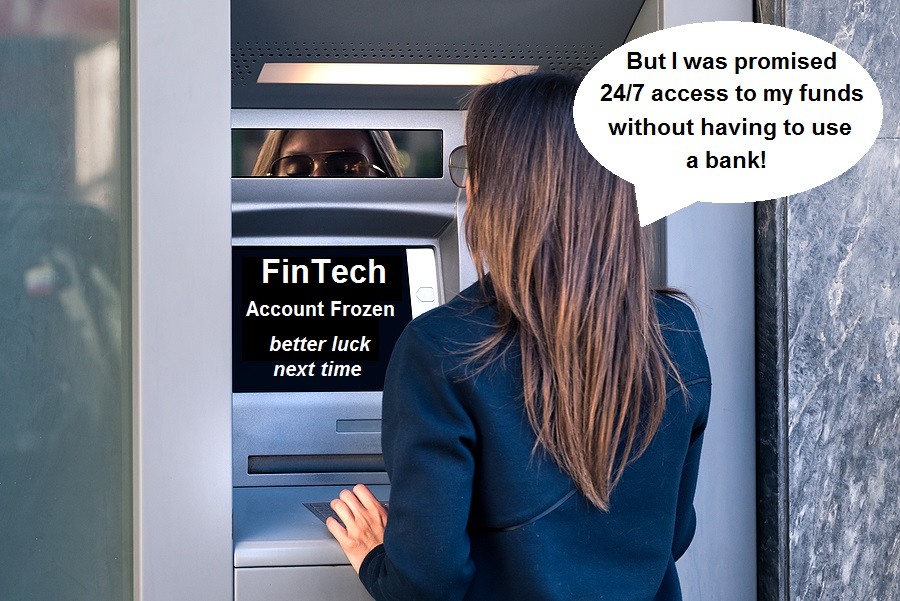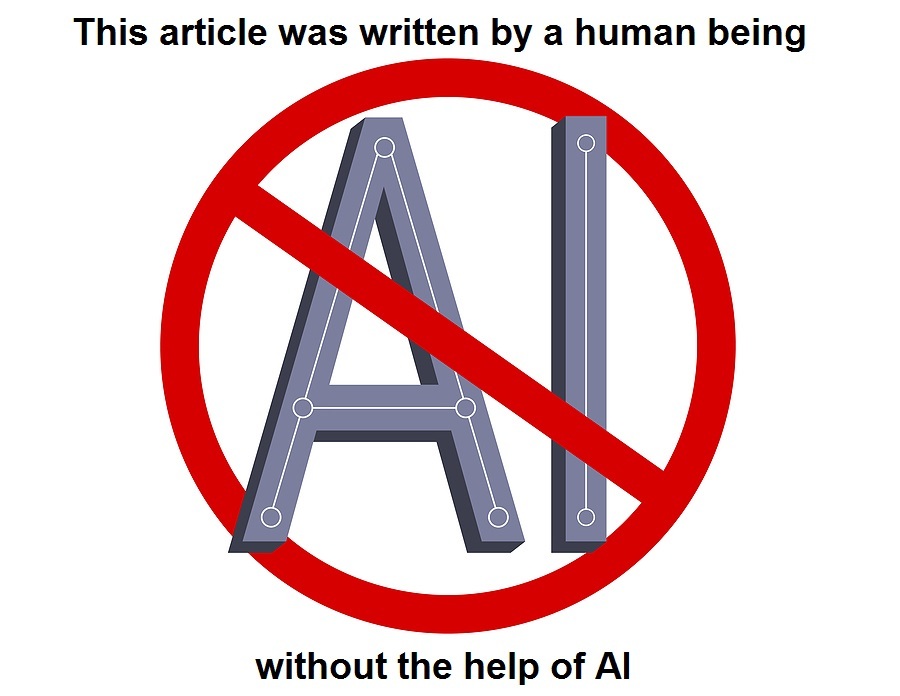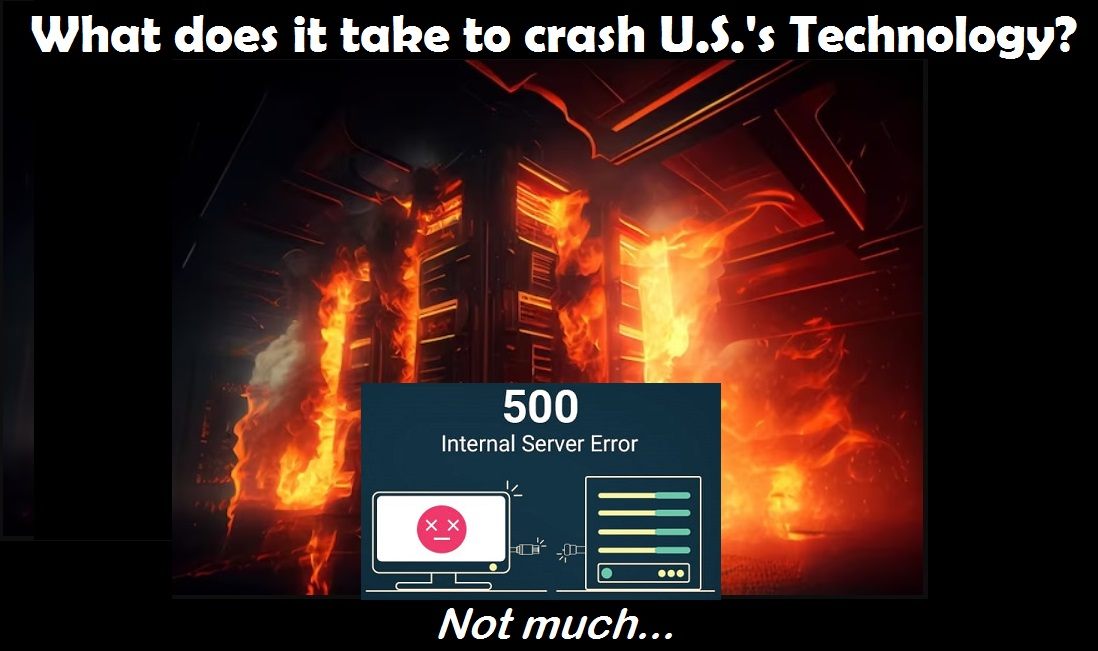
by Brian Shilhavy
Editor, Health Impact News
The technology that America's infrastructure is now hopelessly dependent upon continues to fail, as it was reported this week that one of the most popular FinTech (Financial Technology) apps, which are supposed to “reinvent” banking by getting rid of such pesky nuisances such as over-draft charges, having to wait until your paycheck clears before having access to funds, and many other wonderful Big Tech promises that have convinced swindled tens of millions of people to open accounts on these FinTech apps, has left millions of customers today without access to their funds on deposit.
The collapse of a fintech firm with 10 million users has left many Americans without access to their money
A dispute between a fintech startup and its banking partners has ensnared potentially millions of Americans, leaving them without access to their money for nearly two weeks, according to recent court documents.
Since last year, Synapse — an Andreessen Horowitz-backed startup that serves as a middle-man between customer-facing fintech brands and FDIC-backed banks — has had disagreements with several of its partners about how much in customer balances it owed.
The situation deteriorated in April after Synapse declared bankruptcy following the exodus of several key partners. On May 11, Synapse cut off access to a technology system that enabled lenders, including Evolve Bank & Trust, to process transactions and account information, according to the filings.
That has left users of several fintech services stranded with no access to their funds, according to testimonials filed this week in a California bankruptcy court.
One customer, a Maryland teacher named Chris Buckler, said in a May 21 filing that his funds at crypto app Juno were locked because of the Synapse bankruptcy.
“I am increasingly desperate and don’t know where to turn,” Bucker wrote. “I have nearly $38,000 tied up as a result of the halting of transaction processing. This money took years to save up.”
Until recently, Synapse, which calls itself the biggest “banking as a service” provider, helped a wide swath of the U.S. fintech universe provide services like checking accounts and debit cards. Former partners included Mercury, Dave and Juno, well-known fintech firms that catered to segments including startups, gig workers and crypto users.
Synapse had contracts with 20 banks and 100 fintechs, resulting in about 10 million end users, according to an April filing from founder and CEO Sankaet Pathak. (Source.)
These funds on deposit with these FinTech apps are NOT FDIC insured. And a judge just ruled that if you lost your money on this app, too bad.
As I have been warning for over a year and a half, if you trust in the technology, you risk losing everything as a reward for your faith in Big Tech, as the Big Tech Crash that started in 2022 just after the demise of FTX, with its billionaire founder now sitting in prison, is now accelerating.
Federal bank regulators are not coming to rescue the thousands of fintech customers who have lost access to their money during the unfolding bankruptcy of banking-as-a-service provider Synapse Financial Technologies or the millions more who are at risk.
That was the grim news delivered in a five-hour hearing today before U.S. Bankruptcy Court Judge Martin R. Barash, of the Central District of California.
Earlier this week, he’d urged federal regulators to step in to protect “everyday people” and prevent a “potential disaster.”
While the fintech industry is new and largely unregulated, he observed, the customers should be thought of as “depositors.”
The most immediate cause of pain for individual consumers is a dispute between bankrupt Synapse and one of its bank partners, Arkansas-based Evolve Bank & Trust.
That disagreement has left customers of fintechs Yotta Technologies, Juno Finance and Copper Banking unable to access the money in their accounts or use the credit and debit cards tied to them since May 11th.
But Assistant U.S. Attorney Elan Levey, representing the U.S. Trustee (the arm of the Justice Department involved in bankruptcy cases), said she had investigated Barash’s idea and federal banking regulators couldn’t intervene.
“It's my understanding that the FDIC insurance coverage is only available in the event of a bank failure,” she said. (Source.)
Some reactions from depositors who cannot access their funds.
Among the affected customers is Mark Egidi, a 39-year-old mechanic from Phoenix.
He switched his direct deposit to Yotta for its gamified savings rewards and FDIC insurance.
Now, with an 11-month-old child, recent hand surgery, and no access to his funds, Egidi faces severe financial strain. “At this moment in time, it is absolutely every penny that I have.” (Source.)
One user said they had “over $60,000” tied up in an account that was unreachable. Another, a single mom, had just bought a home and couldn’t access the funds to make the first mortgage payment. A third had saved emergency funds for their family: “I feel powerless and unable to do anything. I’m so upset.” (Source.)
Read more accounts from people who lost access to their funds here.
And this isn't the first time people have been unable to withdraw their funds from a FinTech app. Here is a story that is 2 years old about Chime.
Behind these Big Tech apps, of course, are REAL banks that are FDIC insured, and many of these banks are committing fraud and money laundering to cash in on the popularity of these FinTech financial apps.
The banking regulatory system is slow (and itself corrupt) to move on these crimes, but they seem to be wising up to this encroachment into the banking sector, realizing that Big Tech could bring down the entire financial system, which we got a preview of a year ago with Silicon Valley Bank and other Big Tech banks collapsing.
And as we see with this latest ruling on Synapse, depositors are going to have be the ones who suffer the losses.
Exactly how long is it going to take federal banking regulators to figure out that “move fast and break things” – the business model of Silicon Valley financial technology (fintech) startups and their voracious venture capital backers – is the last thing that Americans want to be integrated into the FDIC-insured bank where they hold their money to pay their mortgage and to buy food to feed their children.
After one form of fintech – crypto – hastened the demise of several FDIC-insured banks in the spring of last year, handing billions of dollars in losses to the FDIC’s Deposit Insurance Fund, a rational person might have thought that federal banking regulators would have moved rapidly to shut down this lunatic banking model. But no. The story becomes ever more surreal today.
Below is the desperate plea filed on Tuesday with the court that is hearing the bankruptcy proceedings of the fintech firm, Synapse Financial Technologies.
A father says his daughter has been working after school at a florist shop to save money for college and now finds that her $1,730 in deposits, ostensibly placed at FDIC-insured Evolve Bank and Trust by Synapse, have disappeared into a black hole. (Full article at Wall Street on Parade.)
After the Big Tech banking collapse last spring (2023), FDIC regulators began investigating some of these banks behind these FinTech businesses, particularly looking into the activities of Mercury, a San Francisco–based fintech backed by Andreessen Horowitz, Coatue Management and Sapphire Ventures, which also had dealings with Synapse.
Inside Mercury’s Stumble From Fintech Hero to Target of the Feds
Mercury rocketed to fame after Silicon Valley Bank’s implosion as a founder-friendly fintech for storing cash. But a rare look inside a meeting with regulators shows their growing concerns with its practices.
by Michael Roddan
The InformationExcerpts:
The meeting last July between officials from the Federal Deposit Insurance Corp. and executives from Choice Financial Group was tense.
For most of the two-and-a-half hour session, the FDIC officials delivered the results of the agency’s recent examination of Choice, a once sleepy bank based in Fargo, N.D., for possible violations of anti–money-laundering and counterterrorism financing regulations, according to records of the meeting.
Their findings weren’t pretty.
The FDIC was particularly concerned about one of Choice’s partners: Mercury, a San Francisco–based fintech backed by Andreessen Horowitz, Coatue Management and Sapphire Ventures that relies heavily on Choice and other established banks to power deposits and other transactions for Mercury customers.
The officials told Choice executives they were concerned that the bank had opened Mercury accounts in legally risky countries such as Russia, Pakistan and Myanmar and had facilitated suspicious wire transfers between Saudi Arabian businesses.
They scolded Choice for allowing overseas Mercury customers to open thousands of accounts using questionable methods to prove they had a presence in the U.S. And they were peeved that Choice hadn’t vetted a compliance system Mercury was using, which the agency said was flagging a curiously low number of suspicious transactions.
“You can’t let any fintech run the show,” one of the FDIC examiners told the Choice executives.
The Mercury issues that the FDIC raised with Choice aren’t the fintech’s only eyebrow-raising practices. Another bank that powered Mercury accounts, Evolve Bank & Trust, pushed back on Mercury requests to sign up online pornography service OnlyFans as a client in 2020 and to take in business customers from the cryptocurrency industry in 2022, at a moment when FTX was imploding and other banks were trying to get as far away from the sector as possible.
The details of Choice’s meeting with the FDIC provide a rare window into how regulators are clamping down on fintechs by focusing on the banks they rely on behind the scenes.
Many of the banks are small regional or community institutions like Choice that experienced rapid growth after partnering with fintech startups.
But regulators are increasingly penalizing those banks for failure to comply with financial rules, including regulations related to customer identification and anti–money-laundering practices.
The crackdown is becoming so intense that some banks that partner with fintechs have announced plans to get out of the business of working with them entirely.
It’s a sharp turn from an earlier era of exuberance in the fintech sector, marked by soaring valuations for an array of startups that promised to disrupt the traditionally conservative banking sector with low fees, fast apps and even crypto trading.
Now, rising interest rates and the FTX scandal, followed by the ripple it caused among banks exposed to the crypto industry, has led to a reckoning among fintechs. Funding deals for fintech startups last year dropped 42% to $35 billion from a year earlier, according to S&P Global—far below the $91 billion in such deals in 2021.
At the same time, regulators and investors have grown increasingly skeptical of financial disruptors, many of which became vectors for fraud during the pandemic, when some customers used fake names to sign up for government stimulus programs and absconded with the funds.
To operate, fintech startups like Mercury need to partner with banks that are licensed to handle deposits, process transactions and issue debit and credit cards, since most of them want to avoid the drawn-out process and compliance headaches that would come from getting banking licenses themselves.
That has placed the onus of complying with financial laws on the banks, which agencies like the FDIC regulate.
Earlier this year, Mercury told customers with debit cards issued by Evolve Bank & Trust, another of the fintech’s banking partners, that those cards would no longer work in a list of 41 countries with elevated risks of financial fraud or with U.S. sanctions against them, including Vietnam, Turkey, Ukraine, Croatia, Iran and Cuba (the move was first reported by Fintech Business Weekly).
But Mercury had previously dragged its feet on such country restrictions, according to one executive involved in the fintech’s relationship with Evolve.
That executive, Sankaet Pathak, is CEO of Synapse Financial Technologies, a banking as a service platform that had acted as an intermediary between Evolve and Mercury.
After Mercury updated its list of banned countries, Pathak wrote on LinkedIn that the fintech had previously “insisted” on retaining customers from many of the countries that eventually wound up on the list.
“One of their [Mercury’s] key criticisms was that Evolve was more restrictive than their other bank partners,” Pathak wrote.
Pathak’s criticism wasn’t entirely a surprise. Mercury broke off its relationship with Synapse in late 2023 to work directly with Evolve. Mercury and Synapse subsequently sued each other over alleged debts and breaches of contract. (Full article).
Reduce Your Dependency on Big Tech Before the Big Tech Crash!
If you are still reading this article, then consider yourself one of the most knowledgeable people on this issue about the coming Big Tech Crash which started in 2022, because these are my LEAST READ ARTICLES of everything I write and publish on, because people prefer the fear porn and the rush of adrenaline they get from reading all the “news” articles I see every day in my newsfeed from the Alternative Media that proclaim Big Tech is taking over the world, as AI and robots are becoming “sentient” and will soon replace humans.
The transhuman myth is alive and well in the Alternative Media these days.
These stories are based on FAITH and a belief system, about what they think the technology will be able to do in the future.
In Hollywood, such belief systems are called “science fiction,” and it seems like many who sell fiction and lies for a living (the movie and TV industry) are starting to wake up to the fact that AI is not what it is hyped to be, as it threatens the very existence of those who produce science fiction for a living in Hollywood.
Here is an example – a 1.21-minute clip.
This belief is so strong, that people in the Alternative Media who are promoting these myths about what they think the technology will do in the future completely ignore the very evidence that they can see in real time every day right before their own eyes, which is that the technology is FAILING!
In my last article I presented strong evidence that Boeing's current failures are based on an over-reliance on technology, making air travel today much more deadly and dangerous due to the failing technology.
The facts and evidence that are available for the world to see today, such as the fact that this week HUNDREDS OF THOUSANDS of Americans cannot withdraw money they had on deposit with FinTech financial services, clearly show how dangerous it is to depend on this technology!
The ONLY REASON the whole system has not crashed yet is because investors keep pouring $BILLIONS into it making an exclusive Technocratic Class filthy rich, while the rest of the population is struggling to even buy groceries.
Is this fear mongering, or is there actually evidence for this?
Here is the evidence:
Grocers are finally lowering prices as consumers pull back
Shoppers are taking on credit-card debt to buy groceries. That’s ‘a canary in a coal mine.’
Meanwhile, here is the top financial technology news today:
Nvidia is sporting growth one tech CEO says hasn’t been seen ‘in the history of capitalism’
Big Tech is making TOO MUCH MONEY on hype right now to be able to tell the public the truth.
Stop listening to them, and look at the actual evidence!
When Elon Musk says he needs more equity share in Tesla or else he will withhold implementing “Autopilot” and driverless vehicles, go look at the evidence of how Tesla is doing today in the dying, failing, EV market, where Tesla has to rent abandoned shopping mall parking lots to store all their new unsold Tesla cars!
Tesla's Storing Unsold Inventory In An Abandoned Mall Parking Lot
The technology is FAILING, and that is a fact, but this news is just not as popular as the “news” about all the hype surrounding technology and how it is going to take over the world and replace humanity.
But for hundreds of thousands of Americans who trusted the hype as fact this week, and found out they lost their life savings because they trusted in the technology and now cannot withdraw their funds from their FinTech accounts, they woke up to the TRUTH about the technology and their fraud, but perhaps too late.
How long will you wait (I am preaching to the choir if you have read this far, as the people who need to read this probably just skipped over this article) until you realize that today's technology claims about the future belong in fictional Hollywood scripts made for the movies and TV as entertainment, rather than something to invest in and trust in?
I have earned my living from the technology for over 25 years now, and have run an ecommerce store on the Internet for 22 years.
I am preparing for life, and business, in the future WITHOUT the technology. See:
Healthy Traditions Offers Up to a 20% Return on a $1000 Investment and Up to a 30% Return for $5000 Investment to Become Resellers of Long-term Storable Food Tested for GMOs and other Toxins
Related:
The New AI Teaches Humanity How to be Better Liars and Will Never Replace Humans

See Also:
Understand the Times We are Currently Living Through
Exposing the Christian Zionism Cult
Jesus Would be Labeled as “Antisemitic” Today Because He Attacked the Jews and Warned His Followers About Their Evil Ways
Insider Exposes Freemasonry as the World’s Oldest Secret Religion and the Luciferian Plans for The New World Order

Identifying the Luciferian Globalists Implementing the New World Order – Who are the “Jews”?
Who are the Children of Abraham?
The Brain Myth: Your Intellect and Thoughts Originate in Your Heart, Not Your Brain
Fact Check: “Christianity” and the Christian Religion is NOT Found in the Bible – The Person Jesus Christ Is
Christian Myths: The Bible does NOT Teach that it is Required for Believers in Jesus to “Join a Church”
Young Man Living on the Streets Finds Jesus of the Bible – Overcomes Drug and “Terminally Online” Addictions
COVID “Vaccine” Injured Muslim Man Learns COVID was a Scam and Meets Jesus of the Bible as he Begins to Heal
Was the U.S. Constitution Written to Protect “We the People” or “We the Globalists”? Were the Founding Fathers Godly Men or Servants of Satan?
The Seal and Mark of God is Far More Important than the “Mark of the Beast” – Are You Prepared for What’s Coming?
The United States and The Beast: A look at Revelation in Light of Current Events Since 2020
The Satanic Roots to Modern Medicine – The Mark of the Beast?
Medicine: Idolatry in the Twenty First Century – 8-Year-Old Article More Relevant Today than the Day it was Written
Having problems receiving our emails? See:
How to Beat Internet Censorship and Create Your Own Newsfeed
We Are Now on Telegram. Video channels at Bitchute, and Odysee.
If our website is seized and shut down, find us on Telegram, as well as Bitchute and Odysee for further instructions about where to find us.
If you use the TOR Onion browser, here are the links and corresponding URLs to use in the TOR browser to find us on the Dark Web: Health Impact News, Vaccine Impact, Medical Kidnap, Created4Health, CoconutOil.com.
Source link



















